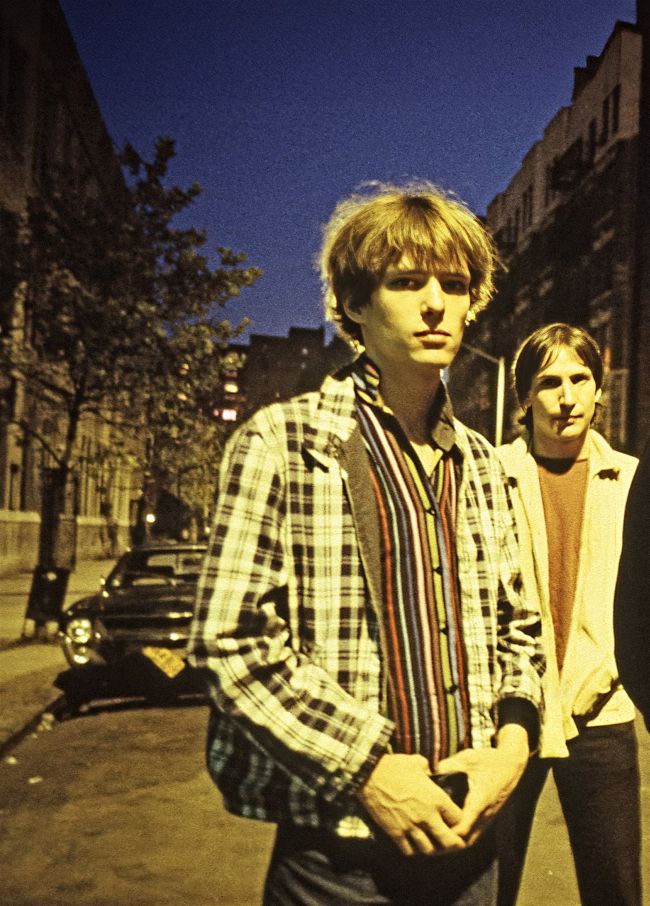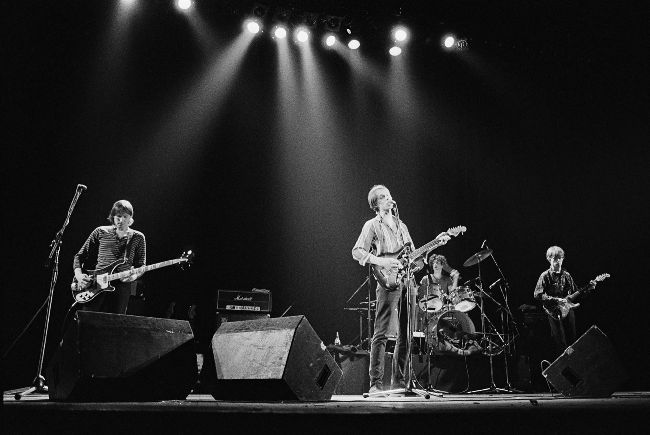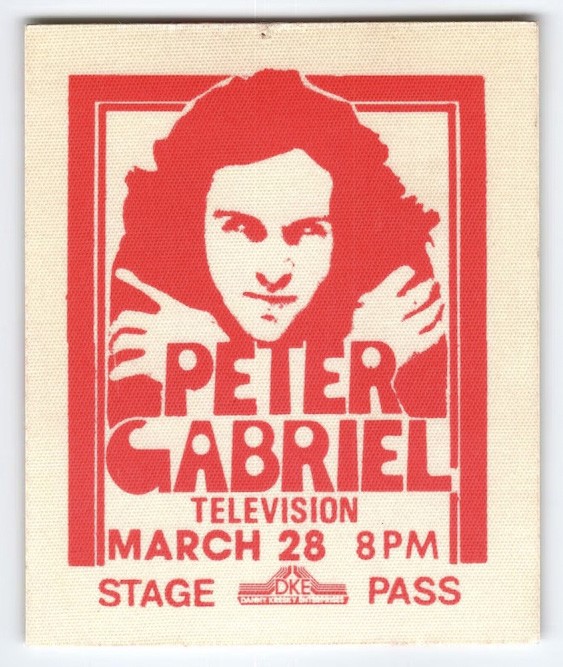AIN'T THAT SOMETHIN'
After the landmark coup of TELEVISION'sMarquee Moon, the New York enigmas struggled and squabbled, yet made two more great albums and an until-now unheard fourth. To the end, the perverse perfectionism of the late Tom Verlaine was the group's creative dynamo, yet it drove bandmates to distraction. "Tom had a vision that was not really rock'n'roll," they tell DAVID FRICKE. "It was a challenge to be unique."

Switched on: Television, New York, 1977 (from left) Richard Lloyd, Fred Smith, Tom Verlaine, Billy Ficca.
David Godlis

Guiding lights: (from left) Smith, Verlaine, Ficca and Lloyd on-stage at Hammersmith Odeon, London, April 16, 1978.
Picture: DAVID GODLIS.
ON MARCH 5, 1977, THE NEW YORK BAND TELEVISION CROSSED THE Hudson River to open their first US tour at the Capitol Theatre in Passaic, New Jersey. Singer-guitarist Tom Verlaine, guitarist Richard Lloyd, bassist Fred Smith and drummer Billy Ficca were supporting Peter Gabriel on his inaugural solo tour after quitting Genesis in 1975. The evening did not go well for either act.
“When we played, you heard people calling out for Peter Gabriel,” Lloyd recalls with an acid laugh. “But when he came on, three songs in, they started yelling, ‘Genesis!’ and fucked with him the whole night.”
Television’s few fans got the worst of it. “Friends of ours got up to dance, and kids threw things at them.”
"WHEN THE CARS LP GOT PLAYED ON THE BUS, WE THOUGHT, OH, THEY'VE GOT A TELEVISION THAT WILL SELL RECORDS."
RICHARD LLOYD
Until that night, Television had rarely ventured above 14th Street in Manhattan, an underground phenomenon even in the city of their birth. Forming in late 1973, Verlaine, Lloyd, Ficca and original bassist Richard Hell were “the most original band I’ve seen in New York,” David Bowie raved after he saw a 1974 set at Television’s ground zero on the Bowery, CBGB. “What the Velvets never were, and what Dylan could never be, all this and more is Television,” wrote Alan Betrock, future editor of New York Rocker. “If given the right exposure, the sky’s the limit.”

Camera Press, Bob Gruen, Alamy
“A lot of craziness with a lot of order at the same time,” Verlaine told a journalist in 1976, describing Television’s special menace and majesty amid the general, feral blur of New York punk: tribal-garage swing and dogfight-guitar ballet in bone-hard treble; emotional precipice in Beat-telegraph songs and strangled-vocal urgency. It was also a good description of the band’s perilous dynamics: the guitarists’ serial conflicts over writing credits and direction; Hell’s dismissal in 1975, ending a friendship with Verlaine that went back to when they were still Richard Meyers and Tom Miller at a Delaware boarding school.
There was a failed demo session with Hell, produced by Brian Eno, then the cryptic tangle of Little Johnny Jewel, a two-part 1975 independent single with Smith, poached by Verlaine from the founding line-up of Blondie. Television finally caught their lightning to landmark effect on Marquee Moon, released by Elektra in February, 1977 and produced by Verlaine with Led Zeppelin-Rolling Stones engineer Andy Johns. Locked and loaded from three years of relentless practice and club nights, the band cut the title track, the LP’s epic centre, in two takes, played through “just as we would at a gig,” Smith says. They kept the first.
IN PASSAIC, TELEVISION WERE STARTING ALL OVER AGAIN. “We got off,” Smith says, “when the boos got louder than us.” It didn’t get better. He and Verlaine visited a radio station in Texas where the DJ listened to 10 seconds of See No Evil, Marquee Moon’s opening storm of vertigo guitar, lifted the needle and told them point blank, “It’s New York shit. I’m not going to play this.”

Rough-cut jewels: the first Television line-up at CBGB, New York, January 1975 (from left) Richard Hell, Tom Verlaine, Billy Ficca, Richard Lloyd; (below) The Cars’ Ric Ocasek (left) and Ben Orr, November 16, 1978.